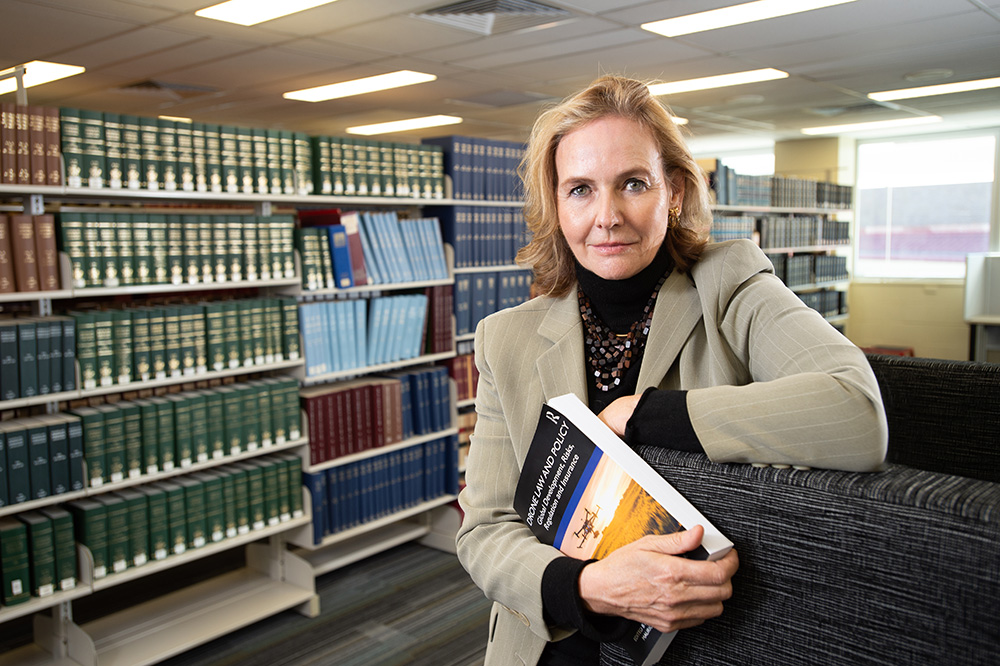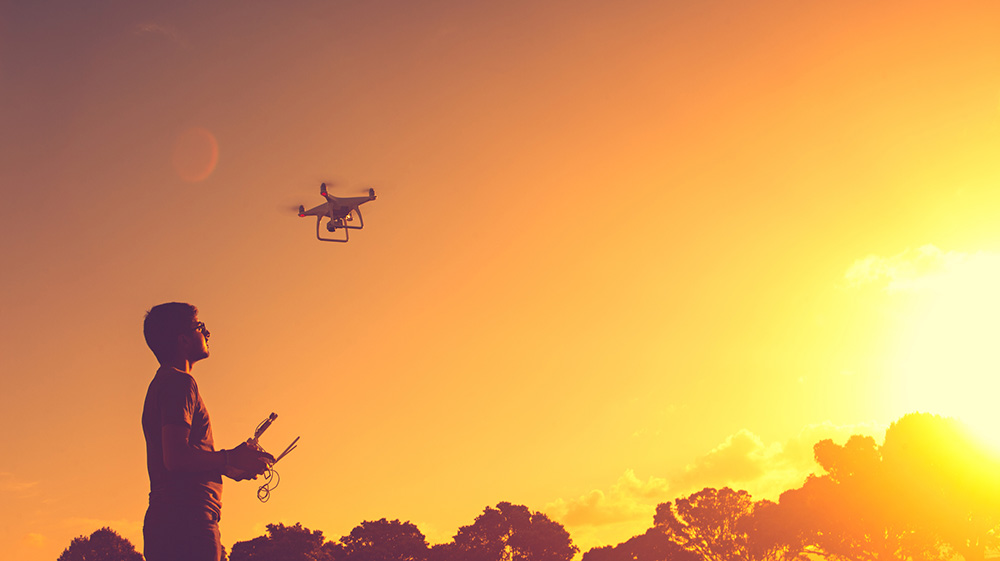Your neighbour has a noisy drone and flies it over your property. Daily. Your abusive former partner is menacing you with a camera-enabled drone. What are your legal avenues to protect your privacy and sanity?
- Private drone use not covered by specific regulations, no consistency in laws across states
- Open to privacy, nuisance, surveillance, stalking breaches
- Legal framework should include third party liability, owner registration & mandatory flight log
Not a lot, says Professor Julie-Anne Tarr, from QUT Faculty of Business and Law who is co-author on the newly published .
Professor Tarr has called for Queensland’s law around drones, surveillance, and privacy to be updated to address the risk drone intrusion and accidents currently represent for the public.

“Australians’ protection against privacy breaches by drones invading their home air space are limited and vary across states,” she said.
“The Federal Privacy Act is usually the first law people think of. It is however directed at businesses over $3m and government agencies, and largely inapplicable in private drone ‘invasions’.
“Surveillance, noise and even stalking laws are inconsistent across Australia. In Queensland, for example, the State’s dated 1971 surveillance legislation does not address optical invasion of home air space.”
Professor Tarr said laws that could be used against privacy invasions included federal, state and territory legislation around trespass, nuisance, data collection, surveillance, and, to a limited extent, criminal stalking laws.
“In the case of a neighbour’s drone use that is tantamount to harassment several legal arguments are commonly raised:
- Nuisance laws – notably around noise – is going to be a key problem in the future. Council, state and federal regulations vary as to acceptable volume, character, timing, number of people impacted and broader community expectation. Generally, drones are quieter than lawn mowers and other home-related noises, which limits this argument, although noise from multiple drones – forecasted for future delivery schemes – may be intense. As the size of drones doesn’t typically whip up a physical kerfuffle on land, such as scaring animals, it would not generally count as ‘nuisance’.
- Trespass – trespass laws are not an option if the drone or operator isn’t physically on your land. Trespass is not committed if the drone is flown above the operator’s own land.
- Invasion of privacy or ‘intrusion upon seclusion’ laws provide little protection from privately owned drones unless they are directly focussing on ‘private’ areas such as bedrooms, bathrooms and changing rooms.
- Some surveillance-oriented laws, such as Queensland’s Invasion of Privacy Act 1971, may create an indirect remedy for a drone that has audio recording capacity but is otherwise toothless against this technology.”
Professor Tarr said for the domestic violence survivor who looks up and sees a drone flying overhead, help from stalking laws may be limited.

“Stalking laws vary from state to state with each legislative provision having very specific requirements for proof,” she said.
“A drone operated to oversee or track a family member may indeed contravene anti-stalking legislation but it would need to meet the relevant burden of proof and be able to tie the to the offender. Given the way drones move and the difficulties identifying ownership of airborne drones, this could be challenging.
“Again, state legislation varies but generally keeping a person ‘under surveillance or watching a person’ requires multiple incidents or patterns.
“Most statutes require proving intent to intimidate and of ‘causing physical or mental harm to, or of arousing an apprehension or fear in’ the person being stalked.”
“In all situations though the real challenge is the practical one of tracing a drone hovering on your property to its operator.”
Professor Tarr said Australia needed national safety and privacy legislation that brought consistency around the burgeoning use of drones by government, corporate and private citizens and which address the patchwork legal landscape that currently creates unnecessary risk.
“Quite apart from standardised safety, privacy and data protection laws, we need better ways of tracking drones, third party insurance for drone operators and/or owners who injure innocent third parties, and the legal requirement to keep an activity log.”
Professor Tarr’s book, Drone Law and Policy: Global Development, Risks, Regulation and Insurance has been shortlisted for the 2022 British Insurance Law Association Book Prize for “a published work constituting the most notable contribution to literature in the field of law as it affects insurance.”
Tarr, Anthony A, Tarr, Julie-Anne, Thompson, Maurice, & Ellis, Jeffrey (Eds.) (2022) Routledge, Abingdon, Oxon.







